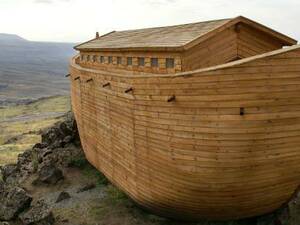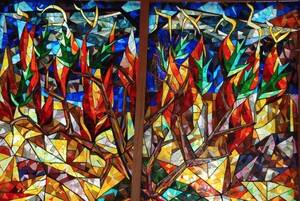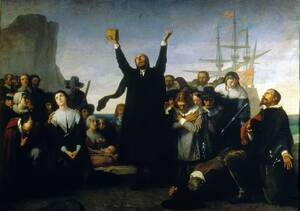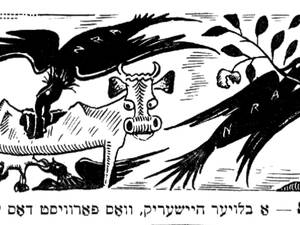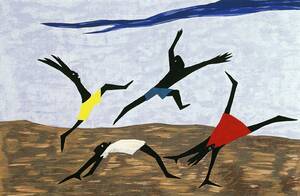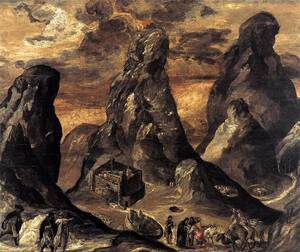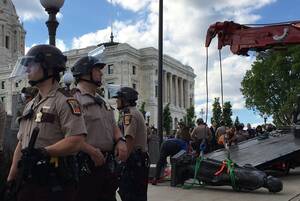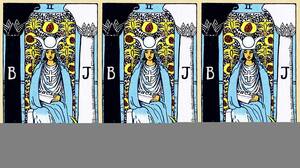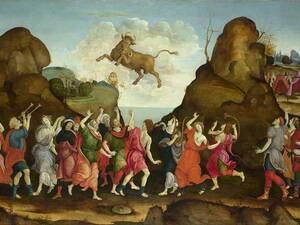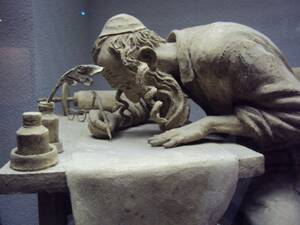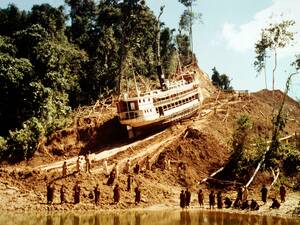Exodus: Shemot
What if, through this crack in the text, older gods return?
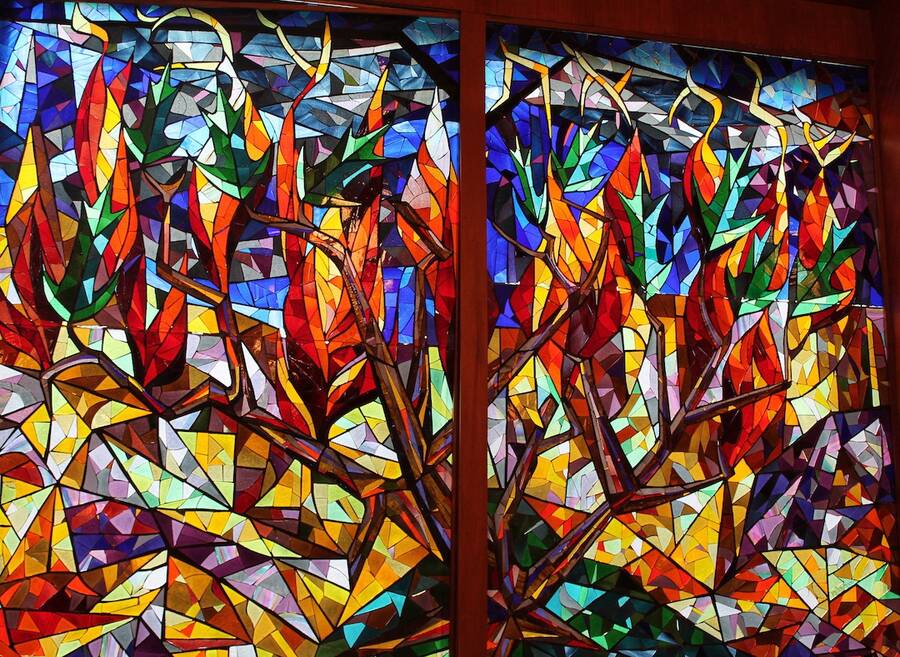
Read previous entries of Slow Burn: Quarantine Edition here.
Shemot
Exodus 1:1 – 6:1
Spartanburg, SC
Dear friends,
The winter of Operation Cast Lead—when Israel invaded Gaza, killing well over 1,000 Palestinians, many of them civilians—I climbed Mount Sinai. This was early 2009. My friend Nicole and I stayed overnight in Saint Catherine, an Egyptian town a few hours to Gaza’s south. Home to one of the world’s oldest Christian monasteries, the town sits at the foot of the mountain where Moses is said to have received the ten commandments. We woke in the dark and started our ascent toward a big green bush sprouting from the mountainside. This, we were told, was the bush, the one that burned. It had gloriously regenerated itself for millennia. “Bush” in Hebrew is “seneh,” intimating Sinai, according to translator Robert Alter, “by way of a pun.” I stood before the bush, wondering what to feel. It was utterly mundane. The absurdity of meeting God here was charming, but also deflating. My name, Sinykin, derives from Sinai. I’d made the pilgrimage to my namesake and it felt, for better and for worse, like a joke.
Standing before the burning bush in Shemot, the first parsha of the Book of Exodus, Moses asks God, “Who am I that I should go to Pharaoh and that I should bring out the Israelites from Egypt?” It’s the apotheosis of impostor syndrome. I’m no Moses, and God hadn’t spoken to me, but I was 25 and aimless, on a quixotic journey that I hoped would reveal who I was to do anything. I’d come to the region on Birthright. As promised, the experience was memorable: I’ll never forget the afternoon I spent lying under a tree on a defunct kibbutz outside Jerusalem reading War and Peace, watching fighter jets scream across the sky en route to bomb Gaza. Afterward, I volunteered in the West Bank, where a Palestinian farmer showed me decades-old documents proving his ownership of the land we were standing on, amid a field of dead saplings uprooted by the IDF. I went to Egypt to wander for a month—maybe it was 40 days—with my feelings. Standing before the bush where Moses was called to build a nation, reflecting on the deformations of Israeli jingoism, I found within me an attunement to the humor that lives within horror.
Exodus begins with a demographic problem. Like a veritable plague, “the sons of Israel were fruitful and swarmed and multiplied and grew very vast, and the land was filled with them.” Swarmed is not an accidental word. Pharaoh worries that if Egypt were to go to war, the Israelites could join the enemy and crush them with sheer numbers. So he enslaves them. But the more he abuses them, the more they multiply, until the Egyptians come to “loathe” the Israelites. Pharaoh is conscripted into a paradigmatic master-slave relationship: his slaves define him as much as the other way around. If he could only hurt them enough, maybe they’d stop with their apparent flourishing. Finally, he breaks and tells his people, “Every boy that is born you shall fling into the Nile.”
I’ve attended my share of social justice seders, where the message of Exodus becomes: As Jews, we know injustice, so we must protest injustice done in our name. Israeli politicians have long recognized their own so-called demographic problem. Palestinians in Israel, the West Bank, and Gaza will soon outnumber Jews, an eventuality that threatens the metaphysics of the Jewish state and licenses violence. In protest, leftist Jews demand: End the occupation. Grant the Palestinian right of return. Here, Moses’s why me? is recast as a communal call to show up for justice. I agree with the politics, but not the exegesis. In Exodus, why me—who am I to fight oppression?—leads to the liberation of the Jews, but also to proto-nationalist violence, justified by chosenness. The Israelites’ deal with God binds them to a particular patch of land, the Canaan of their ancestors, to which they are told they must return. Hebrew freedom thus depends on the annihilation of other tribes that happen to be in the way. The process begins in Chapter 17, when the Israelites massacre the tribe of Amalek, not only defeating them militarily, but—God promises Moses—“wip[ing] out the name of Amalek from under the heavens.” The logic of Exodus is perversely available to the ideology of the settler, from Plymouth plantation to the hilltops of Gush Etzion.
Buried within this narrative of chosenness, Exodus also offers a cryptic alternative path, compelling for sheer weirdness. After God and Moses chat at the burning bush, and Moses gets the okay from his father-in-law to quit his shepherding gig, he, his wife, and his baby make the trip from Midian back to Egypt. One night along the way, “the LORD encountered him and sought to put him to death.” But Zipporah, Moses’s wife, pulls out a flint, circumcises their son, touches the flint “to his feet,” and says, “Yes, a bridegroom of blood you are to me.” And God lets them go. What the fuck?
“This elliptic story,” Alter confirms, “is the most enigmatic episode in all of Exodus.” It is wildly condensed, just five sentences. “The potently anthropomorphic and mythic character of the episode generates a crabbed style, as though the writer were afraid to spell out its real content,” writes Alter. Whose feet does Zipporah touch with the bloody foreskin? Who is the bridegroom of blood? God, Moses, the baby? Why does God want to kill Moses, whom he just appointed to liberate the Jews? It’s unclear. Alter suggests that the episode harkens back to a different cosmology than the one foregrounded in Exodus: “The deity here and the rite of circumcision carried out by Zipporah belong to an archaic—perhaps even premonotheistic—stratum of Hebrew culture.”
This passage, with its obfuscating language and inexplicable action, is easy to elide. But I want to dwell on it, because I think it shows how familiar narratives that organize our experience—narratives of liberation through nationhood—are susceptible to radical rupture from a sunken source in human history. In these days of plague, we live with the fear that a god might, for no apparent reason, come to kill us in the dark of night. Before we fall asleep, we promise each other not to die. We find ourselves kin with older times, 1918, 1858, 1665, 1347. If we accept Alter’s reading, the divine figure in this story is not the singular God of the Israelites, but a different god whom the author of this passage (or later editors) must smother with obscurity. What if, through this crack in the text, older gods return?
The incipient unraveling of the status quo—Egypt’s slave economy, our neoliberal economy—tears time’s fabric. History, as Ari wrote in the introduction to this series, opens up radically. Rickety barriers break down. Unlike Ari I don’t believe in God, but I do believe in gods. I see no clarity, no commandments, but instead the fogged syntax on the road from Midian. Let this rupture bring not only vicious gods but revelrous ones, too, whose demands do not require the simulacrum of bodily sacrifice but invite us to become strange to ourselves, to reject domination and disgust and find in each other, instead, attributes yet unspoken.
The violence of Exodus is too often taken as instructive. God’s taste for blood becomes ours, slaughter an occasion for glee. I’m thinking of what happens after God drowns Pharaoh’s army in the sea. We get a break in the narration for Moses and the whole cast to burst suddenly into song, a gloating musical number, like a scene out of Pynchon. I remembered being at Bible camp when I was 12, sent into the forest with dozens of other tweens. At night, guided by counselors who were teenagers themselves, we gathered around an outrageous bonfire, screaming over and over,
“I will sing unto the LORD,
for he has triumphed gloriously,
the horse and rider thrown into the sea.”
What if we took seriously Exodus’s enigmatic episode, the thinness of time, the rupture of the archaic into our present? Every day now I enter the wild old Appalachian forest not far from where I’m quarantined. Big plum-tinted flowers—relict trillium—perfume the air like overripe peaches. Water rolls through the crannies. How old are these trails? Who walked them? Which gods? I want to see the grasses wet with manna. I want to wake up to a field filled with quail. There is no nostalgia, here, no turning back. The gods come to us. A long black snake winds around the low branch of a beech and I think I might never return.
Dan Sinykin is an assistant professor of English at Emory University and the author of American Literature and the Long Downturn: Neoliberal Apocalypse (Oxford UP, 2020).
